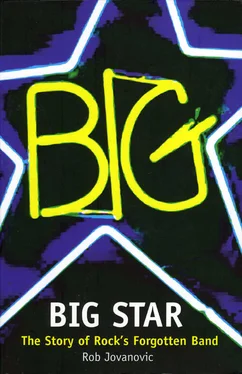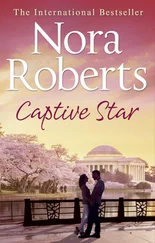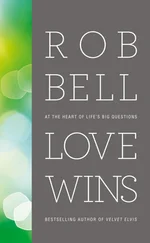There were lots of kids in the Stephens’ neighbourhood that wanted to be in a band and it didn’t take long to get one together. They found a couple of guys with guitars, one of whom could sing. Jody and Jimmy went through many different names, but two were The Sands and Spot. Their early bands of 1964-5 included Tom Eubanks as the singer and another school friend, Wendell Wheat.
Eubanks was another big Beatles fan. ‘I didn’t ever listen to music until the British invasion, it was horribly boring,’ he admits. ‘When the Beatles came out it was this breath of fresh air and with the rawer kinds of sounds like the Kinks’ “You Really Got Me” it was just electrifying. It was something that made me want to do it. I wanted to play guitar but there weren’t the learning aids back then that there are today. I used to muck through it and figure out how to do it.’ Eubanks and Jimmy Stephens were in the same year at high school and started practising at the Stephens house. ‘We never really got anywhere,’ laughs Eubanks. ‘If Jody did something that Jimmy didn’t like, Jimmy’d threaten to beat his ass. I’d say, “Jimmy, you can’t really have a band where you’re threatening to beat up the drummer!”’
‘I think I probably used to ride him,’ admits Jimmy, ‘about his needing to practise more or listen more to what the drummer was actually playing on cover versions – especially with regard to bass and drum lines.’ While Jimmy was brushing up on his bass playing he also sang backing vocals in his friend Mike Fleming’s band, the Chessmen. ‘I had done a couple of parties with them,’ he says. ‘I was doing back-up vocals because they had a bass player who was much more advanced than I was at the time, his name was Andy Hummel.’ The Chessmen consisted of Fleming, Hummel, drummer Scotty Bringhurst and guitarist Dick Wills and provided the link as to how Jody and Andy eventually met.
After several months Eubanks moved on to a new band and Wendell Wheat took his place as the singer in the Stephens brother’s trio. ‘There were different line-ups at various times,’ says Jody. ‘It was the usual core of my brother and Wendell Wheat. We played shows at little dances here and there, parties and stuff. It was all covers.’ At one point the trio actually played at their first recording session. ‘We met a guitar player who was with a black vocalist named Calvin Simms,’ recalls Jimmy Stephens. ‘This was our first recording session at a little studio named Sonic Recording with Roland Janes as engineer.’ That was the closest that the trio came to actually gaining any kind of local recognition because when the principal found out that their band had a black singer he stopped them from playing at their school. ‘Our high school was all white at the time and Calvin was from a different area,’ recalls Jimmy Stephens. ‘As far as I recall, Memphis musicians just played music and didn’t get caught up in the black-white thing. We just wanted to play music and what did skin colour have to do with that, or anything else, for that matter? My parents may have received some stares from the neighbours but we were all doing something positive and fun and they were supportive. Wendell’s mom went to the high school and raised hell with them when she found out they weren’t going to let us play. I think they gave some lame excuse but we knew what was going on.’ The Sonic demo tape would never be used. It had been earmarked for George Klein’s Talent Party but they couldn’t be entered for the show because Simms moved away to Los Angeles, leaving them without a singer.
Andy Hummel had started the 1960s with another house move, this time to Belleair Drive by the side of Overton Park. He was becoming a fan of surf music and bought all the latest singles by the Beach Boys and Jan and Dean. Then, like everyone else, he was hit by the Beatles. ‘I can still remember exactly where I was and what I was doing when I first heard them,’ he says. ‘They totally blew me and everyone else away. It’s sad that so many of the younger folks interested in music these days missed that experience. The Beatles were all anyone talked about. I mean everyone, old and young, the news media; they were just the main thing happening in the world at the time. After that it was the British Invasion and I loved all those bands, bought their records and just listened to rock’n’roll as much as I could. I had a little record player and lots of singles.’
Hummel also changed schools in the seventh grade, aged twelve. His new school was Snowden High, a regular public school where for the first time Hummel was attending classes with members of the opposite sex. ‘Were my eyes ever opened up!’ he laughs. ‘I had spent seven years in a very exclusive, protected environment and all of a sudden I was thrown into the gaping maw of the real world. I mean we had a guy who was seventeen years old still in seventh grade. The place was full of thugs. And girls, girls, girls! I loved it.’
Hummel pushed all the boundaries that he could: rock’n’roll, girls and, in his own words, ‘hanging around in the park all the time smoking cigarettes and stuff’. Overton Park was, and still is, home to the Memphis Zoo. It also has a large wooded area, a nine-hole golf course, some college buildings (including an art school) and is the site of the Overton Park Shell, an amphitheatre where Elvis Presley sang in 1954. Hummel and his friends would sneak up to the art school buildings in the park and try to sneak a peek at the life models that were posing nude for the painting students. They also found an underground system of cemented tunnels that were used for drainage from the park. ‘We lived down there,’ says Hummel. ‘Some of the students from the art academy had once gone down into one of the tunnels and covered the walls with tempera paintings. And it was like our own private art gallery no one else knew about.’
At Snowden, Hummel fell in with a crowd wanting to start a band. The Chessmen, based around Mike Fleming, who was in Hummel’s class, were formed in 1965. ‘I got my parents to buy me a bass that year. I began playing in a basement band with some guys. My musical life just sort of took off from there. My first Precision Bass Sunburst with a rosewood fretboard was about 250 dollars. I took about ten lessons at a local music store and, having played the piano for so long, once I knew which finger to put where to get the notes, the rest was easy. Meanwhile I bought a cheapo Sears Silvertone acoustic six-string. I just played it and played it. I picked out all the songs on all the records I could get. I really began to love Simon and Garfunkel a lot, then Joni Mitchell, and the other folkies because the guitar parts were so much fun to play. Finger picking six-string folk and bluegrass style is still my favourite kind of music.’
Once Jimmy Stephens was occasionally singing with the Chessmen, Hummel soon met Jody. ‘They [Jimmy and Jody] went to the same church,’ explains Hummel. ‘The First Baptist Church was near my house although they lived out in East Memphis. I hung around there because Mike Fleming went to church there and lived close by. Jody was very quiet back in those days so I didn’t really know him all that well. I hung around with Jimmy more. It was later on that I discovered what an extremely nice, considerate guy Jody is, and he has remained so through all we’ve been through, which will always be something of a mystery.’
The Chessmen began with a show at a Catholic or Episcopal church in East Memphis and lasted for about a dozen shows over a period of eighteen months. When that band split, and Jimmy left to play with Jody [who had also occasionally played with the Chessmen] and Wendell Wheat, Hummel and Mike Fleming added Richard Ennis on drums, Jimmy Turnage on guitar and named themselves the Swinging Sensations. A little older and more experienced, they managed to double their profits to around 300 dollars per show. Their line-up changed from time to time with a singer named ‘Yogi’ and a new bass player called ‘Nollie’. Hummel ended up playing keyboards for the last line-up. With Ennis’s dad as manager, the gigs came thick and fast and they moved from youth clubs and church halls to more adult venues, including Air Force bases.
Читать дальше











